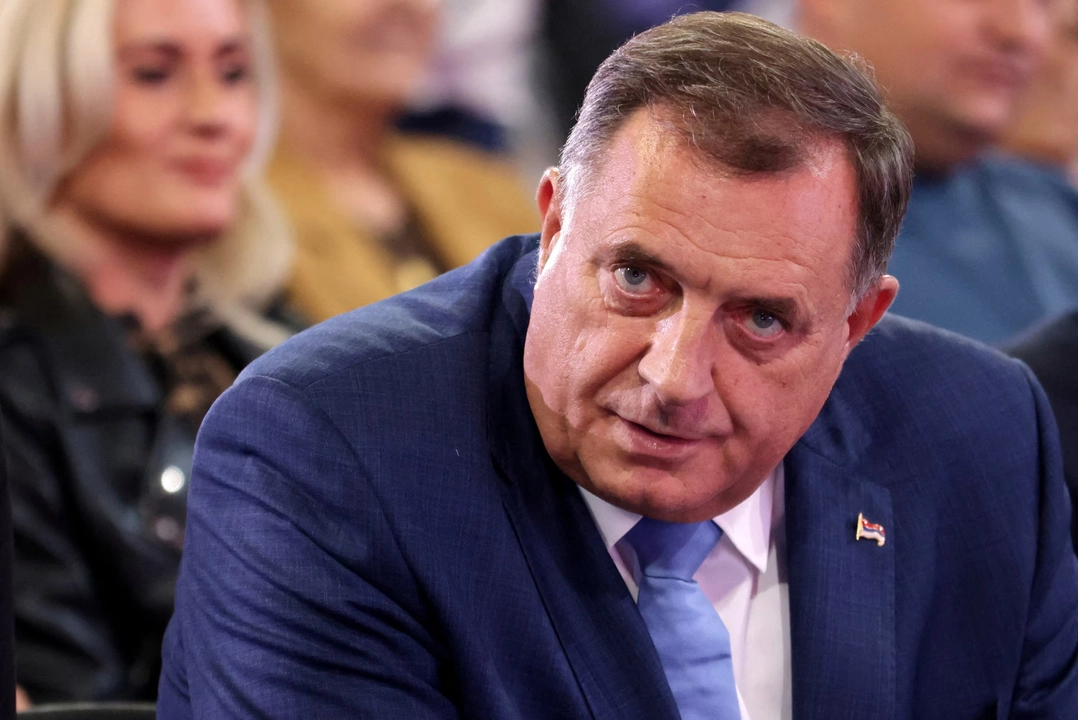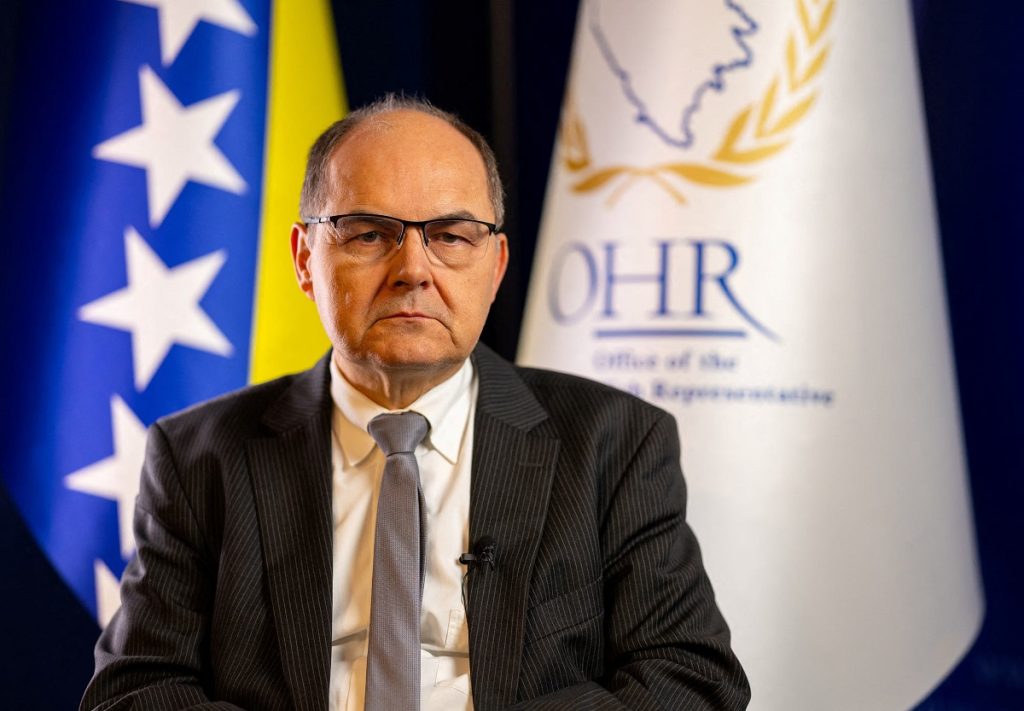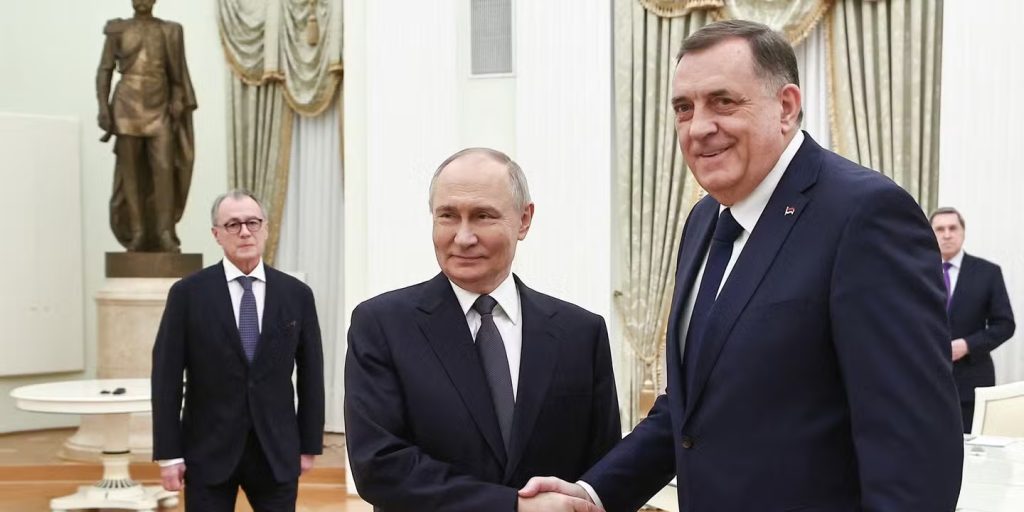
Bosnia vs. Dodik: The Death of Republika Srpska or a Triumphant Victory?
After Republika Srpska President Milorad Dodik was sentenced to a year in prison by a Sarajevo court, the standoff between the entity and the Federation of Bosnia and Herzegovina has escalated to a new level. Banja Luka has passed a series of laws that strongly hint at preparations for independence, while the Bosnian Serb leader has been placed under heightened security. How the internal conflict in this chimera of a state will end remains uncertain, but one thing is clear: either Dodik will be removed from the political stage, followed by continued efforts to dismantle Republika Srpska, or another Serbian nation-state will soon appear on the map.
The Prosecutor’s Office of Bosnia and Herzegovina, suspecting Dodik of a criminal offense classified as “undermining constitutional order,” issued arrest warrants for Republika Srpska President Milorad Dodik, Prime Minister Radovan Višković, and Parliament Speaker Nenad Stevandić. In response to this political move by Sarajevo, the National Assembly of Republika Srpska adopted a draft Constitution. An overwhelming majority of 50 deputies voted in favor, while only eight opposed. The draft asserts that Republika Srpska “has the right to self-determination” and “may enter into federal or confederal unions with other states or groups of states.” Banja Luka is designated as the “principal city,” while East Sarajevo receives the “status of capital.” The draft also includes provisions for forming an army. Additionally, a law on the protection of Republika Srpska’s constitutional order was passed, establishing a new security agency—the Constitutional Order Protection Service, headquartered in Banja Luka. As for the illegitimate High Representative Christian Schmidt, Dodik vowed that Bosnian Serbs would “hunt him down like a beast.”

Photo by Antonio Bronic / Reuters
Sarajevo, in turn, spiraled into hysteria. The State Investigation and Protection Agency (SIPA) received a request from the Bosnian Prosecutor’s Office to assist in arresting Republika Srpska’s leadership. However, SIPA deemed the operation extremely risky and refused to comply. EUFOR even deployed a convoy to Banja Luka—though they assured in advance they would not arrest anyone. The peacekeepers kept their word, but Dodik was placed under guard by Bosnian Serb special forces, just in case.
Interestingly, Republika Srpska’s president managed to cross the Bosnia-Herzegovina border into Serbia and fly to Israel, where he held initial talks—undoubtedly securing Netanyahu’s support. Sarajevo erupted in fury, demanding Interpol issue an international arrest warrant for Dodik. But sensing the direction of events, Dodik left Tel Aviv, transited through Belgrade once more, and flew straight to Moscow.
The lead-up to his meeting with Putin was shrouded in secrecy. Rumors swirled that the Republika Srpska president had obtained Russian citizenship—later denied by Dodik himself. It remains unclear exactly when he arrived in Moscow, though it appears to have been on a Saturday. Yet he only confirmed his presence there on Monday, March 31. A previous meeting had reportedly been canceled due to media leaks.

Putin finally received the Republika Srpska president on Tuesday, April 1. The public was given only sparse details of their discussion, limited to a brief recording of the meeting’s opening minutes and official statements. Still, some conclusions can be drawn. Dodik relayed Putin’s reaction to the events in Bosnia and Herzegovina, noting the Russian president’s awareness of the situation—including the illegitimate actions of High Representative Christian Schmidt. Dodik also emphasized, again citing Putin, that Russia would push for Schmidt’s removal.
Clearly, the meeting with Putin served as a guarantee of ironclad assurances for Dodik. He returned to Banja Luka under an unusually subdued silence from official Sarajevo. The situation could now unfold in two directions: a slow-burning escalation between the Federation of Bosnia and Herzegovina and Republika Srpska, or an equally gradual consolidation of independence by the latter, culminating in its secession from what has become a “prison of nations.” The latter scenario grows more plausible by the day. And, remarkably, the changing administration in Washington—paired with the EU’s evident crisis—seems to be playing right into the hands of the Bosnian Serbs.

